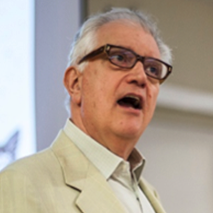With Angela Merkel’s retirement as German Chancellor, Justin Trudeau has become the dean of G7 leaders, its longest serving leader.
That speaks as much to the latest turnover among G7 leaders as to Mr. Trudeau’s longevity as Prime Minister.
A twitter storm raged following this factual acknowledgement by well-regarded political analyst Chantal Hebert.
The debate reflected all the merits and defects of many Twitter political commentaries.
The Trudeau trolls pounced on the statement to repeat their vitriol against his performance as a political and national leader.
His apologists rose to Mr. Trudeau’s defence, citing his government’s achievements and the unfairness of his critics.
As Ms Hebert wryly noted in response, she was simply citing a fact; in the same factual manner, she noted that veteran Bloc Quebecois MP Louis Plamondon, originally elected in 1984, was the dean of the House of Commons.
Other columnists sought to explain the ‘dean designation’ as an undeserved promotion of Mr. Trudeau by his PMO, questioning whether he had earned this role or was capable of executing it.
Twitter can provide valuable factual insight or opinion commentary, sharing perspectives from different ends of the political spectrum and diverse geographies. Journalists regularly use the app to share their latest insight, hoping to stay ahead of the reporting pack.
There is no doubt that many Canadians follow these interactions in the hope of becoming better informed.
Does this Twitter outpouring about the G7 ‘ Trudeau dean debate’ bear any resemblance to the reality of what politicos themselves consider the appropriate measure of success.
It reminded me of a lesson I learned travelling with then Prime Minister Jean Chretien on a Team Canada trade mission to Spain.
Conversing with different senior Spanish political staff at several events, I had asked about their interest in Mr. Chretien.
I probed about their understanding of Canadian politics. Did they find any of Chretien’s political experiences of interest? Did they want to learn more about his breadth of service in multiple Cabinet Minister roles? Were his lessons learned fighting for Canadian unity and against separatist forces [an ongoing and relevant issue in Spain with its Basque region] ones they wanted to hear more about? Were they more focused on the business at hand, how to translate his trade promotion mission into greater opportunity for themselves?
The answer was simple and quick to come.
Repeatedly, they asked numerous questions about how Mr Chretien won three consecutive majority governments. His electoral success was simply unimaginable in most parliamentary democracies.
For these ‘insider’ political observers, in a democracy, the true test of a politician’s effectiveness and influence was staying power.
In Canada, over the last 40 years, we have witnessed our share of leaders winning only one general election. They include Joe Clark, Kathleen Wynne, Bob Rae, Alison Redford, Ed Stelmach, Darrell Dexter, Rachel Notley, Greg Selinger, Lorne Calvert, Pauline Marois, Jacques Parizeau, Philippe Couillard, Lucien Bouchard, John Savage, Rodney MacDonald, Russell MacLellan, Wade MacLauchlan, Dwight Ball, Kathy Dunderdale.
For the trivia enthusiasts among us, a number of others won party leaderships to become designated sitting Prime Ministers or Premiers but never won a general election. The list includes, among other notable names, Kim Campbell, John Turner, Frank Miller, Ujjal Dosanjh, Ernie Eves, Bernard Landry, Daniel Johnson Jr, Pierre Marc Johnson, Donald William Cameron, Roger Stuart Bacon, Iain Rankin.
Winning a general election the first time to head a government is exceedingly hard, twice is remarkable and three times a truly unique achievement.
After all, the political barnacles that ships of state start to acquire following their first day of election victory usually weigh down and disrupt the best laid political prospects.
Idealists may argue that it is far better to attribute success to a leader doing the right thing, on substantive achievements while in office even if they are subsequently reversed.
By that standard, former Ontario Premier Kathleen Wynne might still be winning accolades for her daring introduction of an universal basic income program, even though the initiative was quickly laid to rest when Doug Ford got into office.
Successful politicians have often bemoaned that they can only get ahead of public opinion on evolving issues incrementally if they want to be reelected.
Should success be measured by the ability to inspire and lead? Winston Churchill’s remarkable leadership during WW 2 was rejected in 1945 by the British public.
In any democracy, different factors affect a politician’s success at the polls. The quality and appeal of emerging political opposition or new parties siphoning off votes are relevant.
Policy platforms often play second fiddle to other developments weighing the scales of judgement. Does the public conclude that it is time for a change? Or has the inevitable scandal somewhere in government tarnished the prospects of a second victory? Do assessments based on managing unimaginable acts of God from climate to Covid colour re-election possibilities? Can reaction to world affairs influence vote patterns? Ultimately even quirks of personality or appearance can play a role.
In the face of all these factors, no wonder that political insiders believe that the ability to secure the support of the voters over and over again is likely the fairest way to assess true success.






